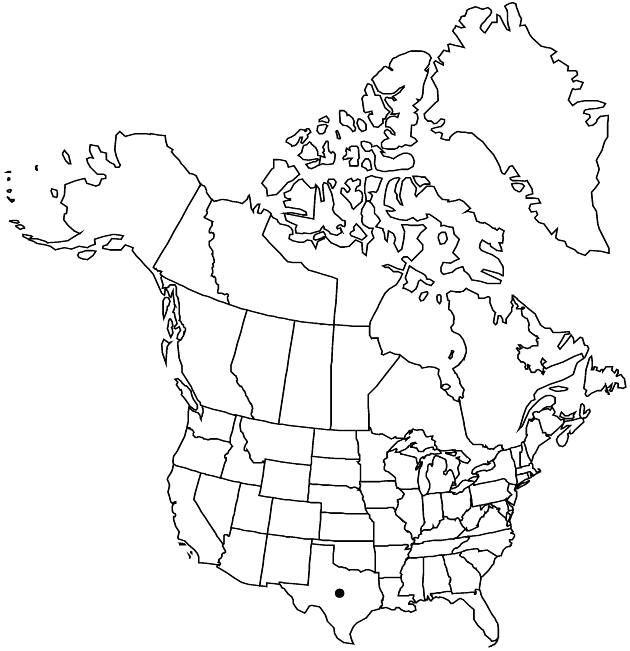Difference between revisions of "Perityle lindheimeri var. halimifolia"
Sida 3: 278. 1968.
Endemic
Basionym: Laphamia halimifolia A. Gray Smithsonian Contr. Knowl. 3(5): 100, plate 9, fig. B. 1852
Synonyms: Perityle halimifolia (A. Gray) Shinners
Treatment appears in FNA Volume 21. Treatment on page 332.
imported>Volume Importer |
imported>Volume Importer |
||
| Line 60: | Line 60: | ||
|publication year=1968 | |publication year=1968 | ||
|special status=Endemic | |special status=Endemic | ||
| − | |source xml=https:// | + | |source xml=https://bitbucket.org/aafc-mbb/fna-data-curation/src/2e0870ddd59836b60bcf96646a41e87ea5a5943a/coarse_grained_fna_xml/V19-20-21/V21_829.xml |
|tribe=Asteraceae tribe Heliantheae | |tribe=Asteraceae tribe Heliantheae | ||
|subtribe=Asteraceae (tribe Heliantheae) subtribe Peritylinae | |subtribe=Asteraceae (tribe Heliantheae) subtribe Peritylinae | ||
Latest revision as of 20:14, 5 November 2020
Pappi usually 0, sometimes of single bristles 0.5–1(–1.5) mm, usually plus obscure, callous crowns. 2n = 34.
Phenology: Flowering Apr–Jun.
Habitat: Cretaceous limestone outcrops
Elevation: 300–800 m
Discussion
Variety halimifolia is known only from Cretaceous limestone exposures in Val Verde and Crockett counties on the western edge of the Edwards Plateau. The pappus generally lacks bristles and the plants usually are smaller and somewhat depauperate in habit when compared with var. lindheimeri.
Selected References
None.
Lower Taxa
None.
